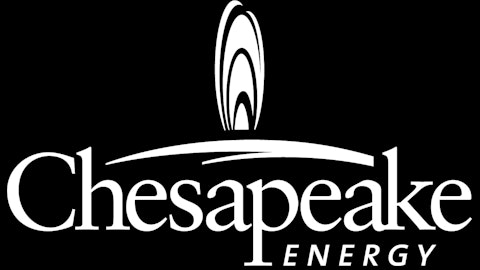SandRidge Energy Inc. (NYSE:SD) and Chesapeake Energy Corporation (NYSE:CHK) are two companies that have been in the thick of controversy over corporate governance, and the similarities between the controversies may be explained by the fact that Tom Ward, the CEO of SandRidge co-founded Chesapeake before he founded SandRidge. Chesapeake’s controversial CEO Aubrey McClendon announced his departure recently, and the spotlight is now on Tom Ward. This article examines the latest situation in the ongoing saga where activist shareholders led by TPG-Axon are seeking to replace him and some of the directors on the board.

The latest controversy in corporate governance is that SandRidge is giving Tom Ward considerable latitude to profit from personal oil-and-gas deals that could present potential conflicts of interest with the company. The company has lifted most restrictions on Ward’s rights to sell mineral rights or drill wells with a little noticed modification to his agreement of employment in 2011. Prior to this, Ward was allowed to receive royalties from SandRidge or jointly own wells with it only on the land that he had owned before 2006. The 2011 mortification permits him to strike deals with SandRidge and to do business with SandRidge on any land that he owns or acquires.
According to Reuters, land records examined by them reveal that an entity linked to Ward 192 Investments LLC acquired mineral rights on thousands of acres in the Mississippi Lime shale formation in Kansas late in 2011. These rights were acquired a few months before SandRidge leased property in neighboring or adjacent plots. Such deals could pose a potential conflict of interest. Giving top executive latitude to generate personal income by partnering or competing with the public company he runs is, to say the least, unusual because it could diminish returns for shareholders and create conflicts of interest according to industry attorneys and specialists in corporate governance. Entities connected to Ward may lease drilling rights and sell them to SandRidge at higher prices. Alternately, they may acquire mineral rights before SandRidge, and if SandRidge subsequently acquires and develops the land, the Ward acreage is suddenly more valuable. This practice is called front running, and Ward’s profits are earned at the expense of shareholders.
Institutional Shareholder Services Recommendations
TPG-Axon, beneficial owner of 6.7% of the outstanding shares, has announced that Institutional Shareholder Services (“ISS”), a leading independent proxy voting and corporate governance advisory firm, has recommended SandRidge stockholders vote in support of TPG-Axon’s proposals that SandRidge’s bylaws be amended to destagger the Board, that five incumbent directors be removed, and that independent director nominees be elected to the Board. In its recommendation, ISS made the following points:
“The apparent failures of stewardship on this board are legion.”
“The company’s abrupt, piecemeal approach to corporate strategy and concomitant lack of capital discipline have increasingly limited the company’s financial flexibility, and engendered a deep distrust in the market.”
“From a stutter-stepping business strategy and weak capital discipline which reduced financial flexibility so far that the sale of the company’s most valuable non-core asset cannot close its anticipated funding gap-to a compensation program which failed to tie pay to performance, making the CEO one of the highest paid in his industry even as shareholder value declined by nearly three-quarters over his tenure-to approving numerous related-party transactions which, under public scrutiny, begin to look more like front-running the company’s own lease acquisitions than adding value unavailable through a less conflicted means-there is little reason to believe the outside directors who are specially charged with looking out for the interests of unaffiliated shareholders are best equipped to effect the necessary change at SandRidge.”
“Given the fact pattern underlying the dissidents’ extensive case for change, and the evidence of appropriately extensive advance planning to mitigate risks of unintended consequences, shareholder support for a majority change of the SandRidge board is warranted.”





